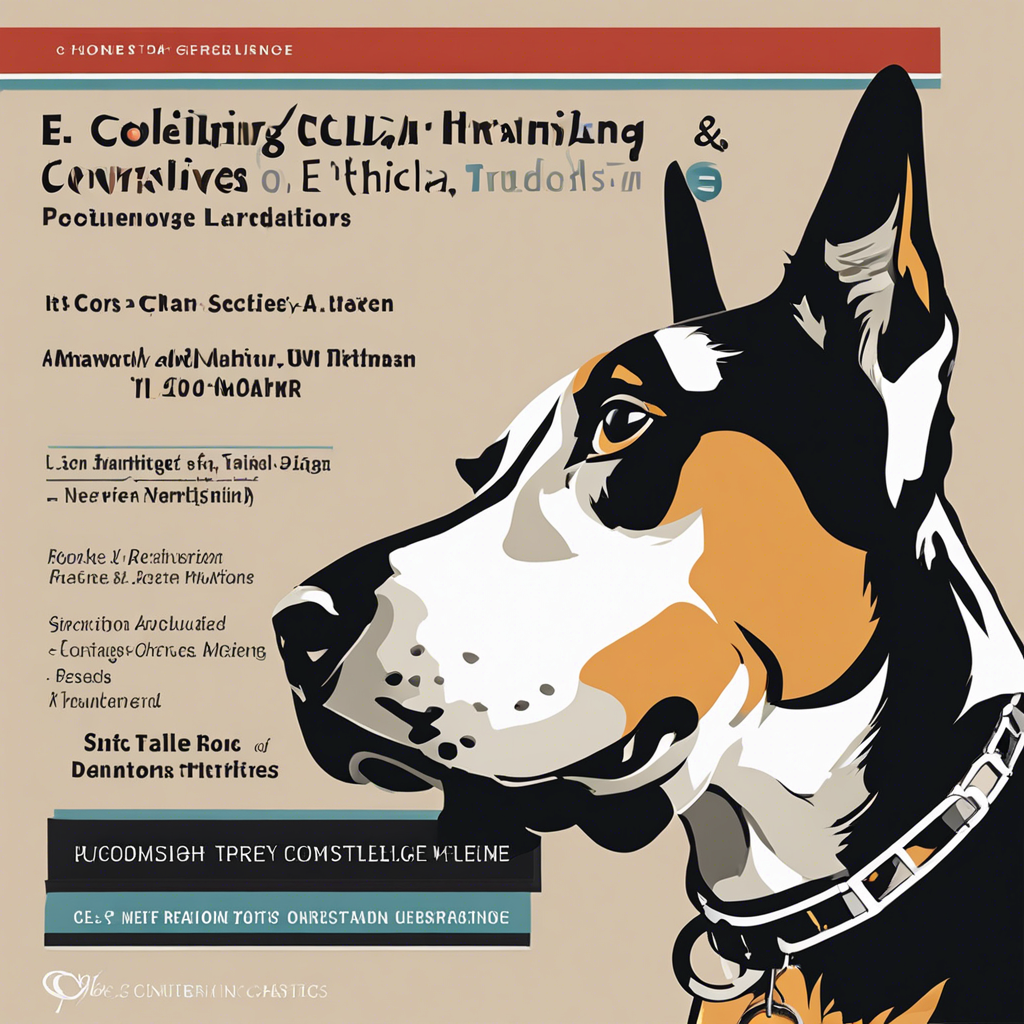E-collar training, also known as electronic or remote collar training, has sparked intense debates among dog enthusiasts and animal welfare advocates. This method of training involves using a specialized collar that delivers an electric stimulation to the dog’s neck as a means of behavior modification. While proponents argue for its effectiveness, critics raise concerns about its potential harm and ethical implications. This controversial technique has divided the dog training community and sparked discussions about responsible training practices.
Supporters of e-collar training claim that it can be a highly effective tool when used correctly. They argue that the collars provide a quick and consistent correction, allowing trainers to communicate with dogs from a distance and potentially prevent dangerous situations. For instance, in off-leash training, e-collars can be used to redirect a dog’s attention back to the handler or stop it from chasing wildlife. Advocates emphasize the importance of proper training and the use of mild stimulation levels, ensuring that the dog experiences only a mild tingling sensation rather than pain.
However, opponents argue that e-collars can lead to physical and psychological harm. When misused or set at high levels, these devices can cause pain, fear, and anxiety in dogs. Negative experiences during training may result in long-term behavioral issues, such as increased aggression or fearfulness. There is also a risk of accidental misuse, as dogs can be corrected for normal behaviors or punished for actions they do not understand, leading to confusion and distress.
The controversy surrounding e-collar training has led to various studies and expert opinions. Some research suggests that e-collars can be as effective as positive reinforcement methods when used by experienced trainers. However, animal behaviorists often express concerns about the potential for misuse and the lack of regulation in their use. The American Animal Hospital Association (AAHA) and the RSPCA (Royal Society for the Prevention of Cruelty to Animals) oppose the use of e-collars due to the risk of adverse effects on animal welfare.
Ethical considerations play a significant role in the debate. Critics argue that e-collars can infringe upon a dog’s welfare and dignity, causing unnecessary stress and discomfort. Using punishment-based methods instead of positive reinforcement training, which focuses on rewarding desired behaviors, raises concerns about animal cruelty and the potential for abuse. Many dog lovers believe that the use of e-collars reflects an outdated and overly harsh approach to dog training.
To address these concerns, some countries have implemented regulations or outright bans on e-collars. For example, several European countries have prohibited the use of e-collars, and certain US states are considering similar legislation. These actions reflect a growing awareness of the potential risks associated with e-collar training.
Given the ongoing controversy, dog owners should carefully consider their training methods. Alternatives such as positive reinforcement training, which emphasizes rewards for good behavior, have gained popularity due to their effectiveness and animal-friendly approach. Understanding the potential risks and benefits of e-collar training is crucial for making informed decisions about the well-being of our canine companions.
As the debate continues, responsible dog training practices should prioritize the dog’s welfare and mental health. This includes using the least intrusive methods first and ensuring that any form of training is conducted by knowledgeable professionals. The e-collar training controversy highlights the need for ongoing education and awareness regarding dog behavior and training techniques to ensure the best possible care for our beloved pets.
In conclusion, e-collar training remains a contentious issue, with advocates and critics presenting strong arguments. While some view it as a valuable tool, others see it as a potential source of harm and a threat to animal welfare. The ongoing dialogue among trainers, behaviorists, and dog owners is essential to promoting ethical and effective training practices. By staying informed and considering alternative methods, dog owners can make choices that align with their values and ensure the happiness and well-being of their four-legged family members. This topic exemplifies the importance of responsible pet ownership and the continuous evolution of animal training methodologies.

